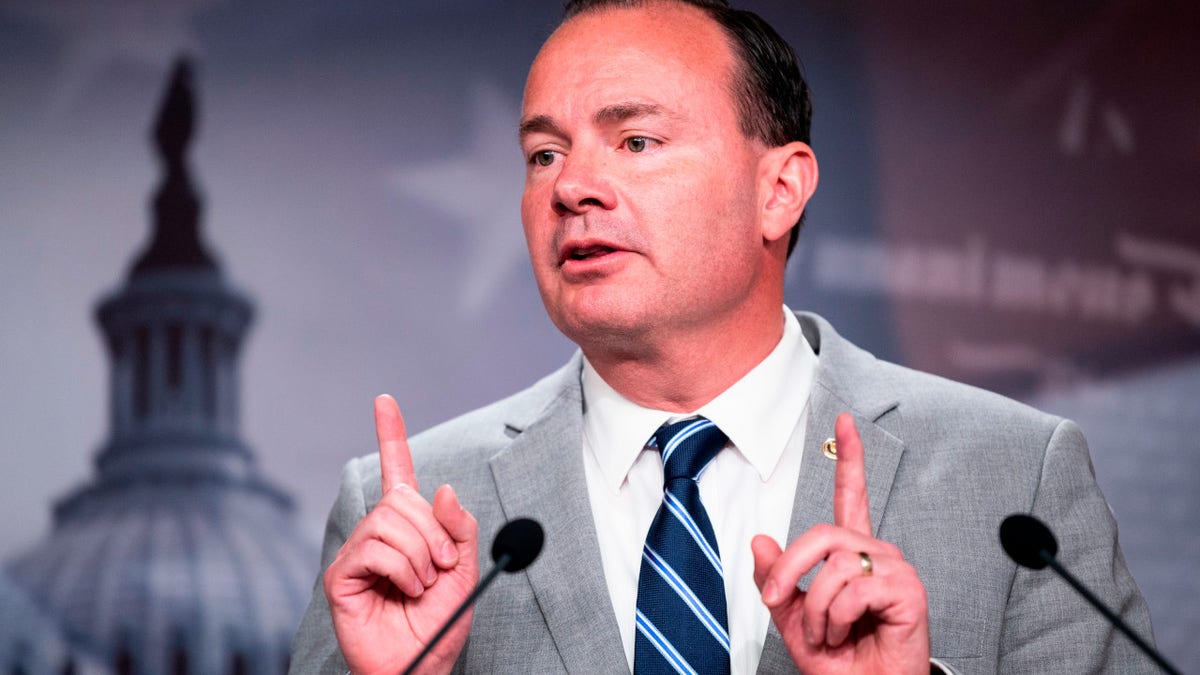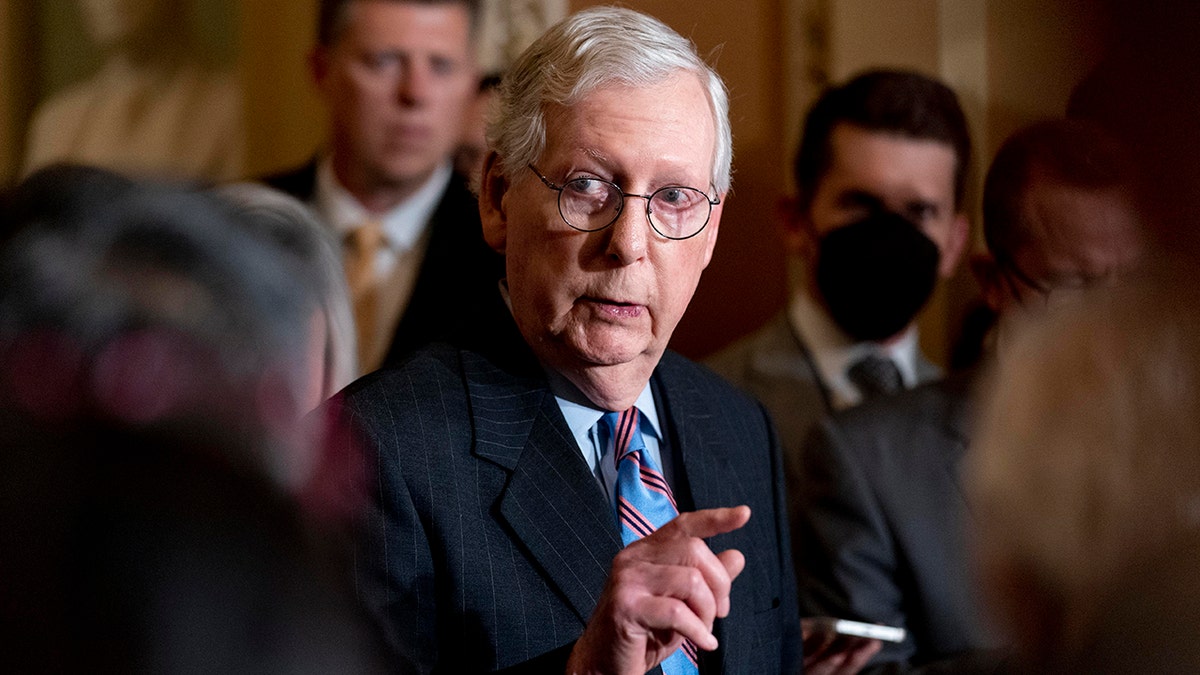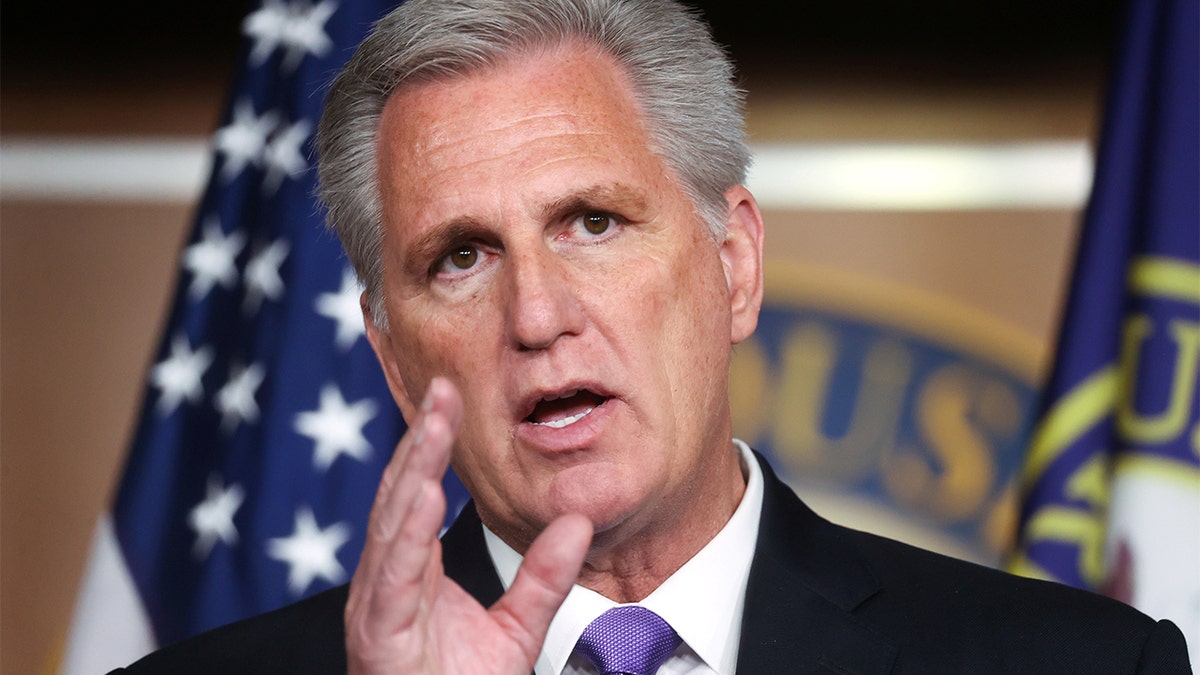Republicans 'must' and 'will' govern differently 'if given the chance': Sen Mike Lee
Sen. Mike Lee, R-Utah, discusses his re-election bid for Senate against Evan McMullin (I), inflation, the Republicans' agenda following the 2022 midterms, and the politicization of the FBI on 'Sunday Morning Futures.'
Sen. Mike Lee on Wednesday tore into House and Senate leaders for setting up late-year government spending drama and accused them of threatening to disrupt the Christmas holiday by forcing a vote on legislation that keeps the government running but also includes more federal spending.
The last-minute maneuvering is "designed by its very nature to carry out this extortive threat," Lee said. "You either vote for this or you’re voting to shut down the government, leaving us the only other alternative… working through the Christmas holidays and missing scheduled time with family. That’s how they do this."
House and Senate leaders are setting up a vote this week on a short-term spending bill to keep the government running until Dec. 23, allowing more time to write and pass a full-year spending bill next week. That agreement between House and Senate Democrats is likely to find enough support from Senate Republicans to pass it, but has no input from House Republicans, many of whom oppose new spending and want to focus on this issue next year when they control the House.
US DEBT EXPLOSION FUNDED BY AMERICANS, NOT FOREIGN COUNTRIES, POSING RISKS TO ECONOMIC GROWTH

Sen. Mike Lee, R-Utah, accused Democratic leaders of carrying out an ‘extortive threat’ to approve more federal spending. (Bill Clark/CQ-Roll Call, Inc via Getty Images)
Lee and his spending hawk Republican colleagues in the Senate agree with those House Republicans, and Lee accused Democratic leaders of using the Christmas holiday as leverage to get it done next week. Lee said Congress should instead pass a bill that funds the government for another few weeks to give the incoming GOP majority House time to deal with spending next year.
That plan would "allow Congress to approach this omnibus spending package with the kind of clear-headed thinking that is requiring, and not under the extorted dual-threat of shutdown and missing the Christmas holidays with family," Lee said. "That’s the dual threat that this kind of spending practice puts us under."
Lee also stressed that he wants to avoid a partial government shutdown, but said the Democratic plan makes a shutdown more likely.
DEBT CEILING BOMB NEARS AS GOVERNMENT SPENDING BALLOONS

Senate Minority Leader Mitch McConnell.
"It substantially increases the threat of a shutdown," Lee said of the late-year dramatic timing. "That is not a bug, it’s a feature. That’s its purpose."
"You put an important must-pass bill, in this case a spending bill without which the government will shut down, you put it right next to a scheduled recess," he said. "The more critical and valued the recess, the more potent the threat becomes. And then you move it even closer to that recess."
Lee spoke with Sen. Ron Johnson, R-Wis., Rick Scott, R-Fla., and Rand Paul, R-Ky., all of whom warned about the dangers of new spending at a time of high inflation. Paul accused "big government" Republicans of working with Democrats to pass a "Christmas tree" bill in the last days of the year.
"The Christmas tree in Washington is a bill that has something on it for everyone," Paul said. "You won’t know what it is until you get it, you won’t be able to read it until it’s done, but it will happen, because the only thing that invariably happens in Washington is that they will get together to spend money."
DEMOCRATS COULD ADD $500B IN NEW DEBT DURING FINAL WEEKS OF CONGRESSIONAL CONTROL

House Minority Leader Kevin McCarthy, R-Calif. (REUTERS/Jonathan Ernst)
Johnson warned that the federal government continues to spend money even though the COVID pandemic has receded. Johnson noted that the government spent $4.4 billion in 2019, before the pandemic hit, and now, four years later, it on pace not to fall back to something around that level but will likely stay elevated above $6 trillion.
CLICK HERE TO GET THE FOX NEWS APP
Outside budget experts have said virtually all new spending will come from borrowing, which will increase the $31.3 trillion national debt.
"We're mortgaging our kids' future," Johnson said. "This is killing us, from a financial standpoint. This has got to stop."




